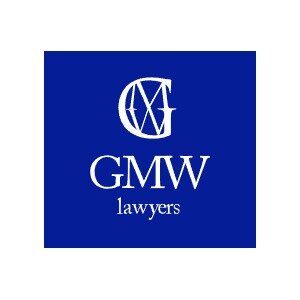Best Tax Lawyers in The Hague
Share your needs with us, get contacted by law firms.
Free. Takes 2 min.
List of the best lawyers in The Hague, Netherlands
About Tax Law in The Hague, Netherlands
The Hague, as part of the Netherlands, adheres to Dutch tax law. Its major components can be classified into three categories: Income Tax, Corporate Tax, and Value Added Tax (VAT). Recently, The Netherlands has been undertaking reforms to align their tax system with the OECD's recommendations on Base Erosion and Profit Shifting (BEPS) and EU directives. It is necessary to understand your tax obligations and entitlements to prevent any disputes and ensure compliance with Dutch law.
Why You May Need a Lawyer
Individuals and businesses might require a tax lawyer when dealing with complex tax issues such as international tax planning, understanding changes in tax laws, resolving disputes with the Dutch Tax Authority, estate planning, or when starting a new business. A qualified lawyer can provide professional services ranging from tax consultation to representation in court cases.
Local Laws Overview
In the Hague, as in the rest of the Netherlands, income tax is divided into 'boxes'. Each 'box' contains certain types of income and has its own tax rates. Box 1 includes income from employment and home ownership, Box 2 contains income from substantial business interest, and Box 3 covers income from savings and investments.
For businesses, the corporate tax rate is determined based on their yearly profit. Additionally, a 21% VAT must be charged on the supply of goods and services in the Netherlands. A "small business scheme" can apply, granting an exemption for small business owners whose VAT payable does not exceed a certain limit.
Frequently Asked Questions
1. What is the income tax rate in The Hague?
Income tax in the Hague follows progressive rates depending on the category of income (Box 1, 2, 3), with maximum rates reaching up to 49.5%.
2. Do Inheritance and Gift Tax apply in the Hague?
Yes, both inheritances and gifts received are taxable in the Netherlands. However, certain exemptions and reduced rates are applicable depending on the relationship between the giver and recipient.
3. What is VAT and how is it applied?
VAT or Value Added Tax is applied to the supply of goods and services in the Netherlands. The general rate is 21%, but in some cases, a reduced rate of 9% or even a VAT exemption may apply.
4. Do I need to be a Dutch resident to pay taxes in the Hague?
No, you do not need to be a Dutch resident to have a tax obligation in the Netherlands. Taxes may apply to both residents and non-residents in different circumstances such as owning real estate or receiving income from Dutch sources.
5. What is the corporate tax rate in the Hague?
The corporate tax rate ranges from 15 to 25% depending on the annual profit of the business. The lower rate applies to the first €245,000 of profit, while the remainder is taxed at the higher rate.
Additional Resources
The Dutch Tax and Customs Administration’s website is a valuable resource for both individuals and businesses. Non-profit tax advice organizations like the Tax Justice Network and Tax Help for Older People can also provide valuable insights and assistance. Legal firms in The Hague like GMW lawyers and A&K Tax solutions offer specialized legal services in tax law.
Next Steps
If you believe you need legal assistance with tax law in The Hague, the ideal first step would be to contact a local lawyer specialized in tax law. They will be able to provide advice tailored to your situation. If necessary, they could represent you in any tax disputes or court cases. Ensure that you fully understand all the fees and terms before proceeding with any legal service.
Lawzana helps you find the best lawyers and law firms in The Hague through a curated and pre-screened list of qualified legal professionals. Our platform offers rankings and detailed profiles of attorneys and law firms, allowing you to compare based on practice areas, including Tax, experience, and client feedback.
Each profile includes a description of the firm's areas of practice, client reviews, team members and partners, year of establishment, spoken languages, office locations, contact information, social media presence, and any published articles or resources. Most firms on our platform speak English and are experienced in both local and international legal matters.
Get a quote from top-rated law firms in The Hague, Netherlands — quickly, securely, and without unnecessary hassle.
Disclaimer:
The information provided on this page is for general informational purposes only and does not constitute legal advice. While we strive to ensure the accuracy and relevance of the content, legal information may change over time, and interpretations of the law can vary. You should always consult with a qualified legal professional for advice specific to your situation.
We disclaim all liability for actions taken or not taken based on the content of this page. If you believe any information is incorrect or outdated, please contact us, and we will review and update it where appropriate.












